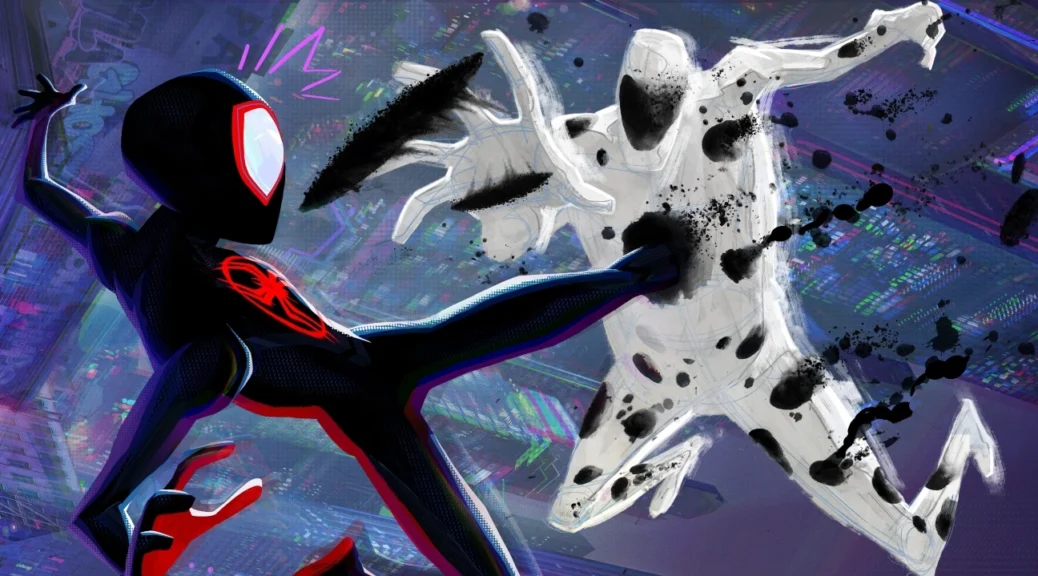Spider-Man: Across the Spider-Verse
by Hope Madden
Do you remember how cool Spider-Man: Into the Spider-Verse was? It was the coolest! A film that celebrated everything a comic book film could be, everything a hero could be, and everything a cartoon could be.
Expect all that again as Miles Morales (Shameik Moore) returns, this time sharing screentime and character arc almost 50/50 with Spider-Woman Gwen Stacy (Hailee Steinfeld), who starts us off with her own troubled tale of balancing great responsibility with great power. Things get so bad she has to abandon this universe, and her one real friend.
That friend has his own troubles. Mr. and Mrs. Morales (do not call them by their first names) know Miles is keeping something from them, a problem that’s only exacerbated by some goofy villain-of-the-week (Jason Schwartzman, priceless).
Or is Miles taking The Spot less seriously than he should?
He is! No matter, he gets to help Gwen and bunches of other (often hilarious) Spider-Men (and -Women and -Cats and -Dinosaurs). But it all goes to hell in a riotous celebration of animated style and spot-on writing that simultaneously tease and embrace comic book lore.
Schwartzman is not the only killer new talent crawling the web. Daniel Kaluuya lends his voice to the outstanding punk rock Spider-Man, Hobie; Issa Rae is the badass on wheels Jessica Drew; Karan Soni voices the huggable Pavitr, or Spider-Man India. Rachel Dratch plays essentially an animated version of herself as Miles’s high school principal, and the great Oscar Isaac delivers all the serious lines as Spider-Man Miguel O’Hara. Add in the returning Brian Tyree-Henry, Luna Lauren Velez and Mahershala Ali, and that is a star-studded lineup. Studs aplenty!
That wattage is almost outshone by the animation. Every conceivable style, melding one scene to the next, bringing conflict, love and heroism to startling, vivid, utterly gorgeous life.
Writers Phil Lords and Christopher Miller (The Lego Movie, The Mitchells vs. the Machines) return, bringing Shang-Chi and the Legend of the Ten Rings writer Dave Callaham along for the sequel. Their story is wild but never illogical, delivering a heady balance of quantum physics, Jungian psychology and pop culture homages while rarely feeling like a self-congratulatory explosion of capitalism. Heart strings are tugged, and it helps if you’ve seen the previous installment. (If you haven’t, that’s on you, man. Rectify that situation immediately.)
If there is a drawback (and judging the reaction of some of the youngsters in my screening, there may be), it’s that Across the Spider-Verse is a cliffhanger. If you’re cool with an amazing second act in a three-story arc (The Empire Strikes Back, The Two Towers), you’ll probably be OK with it. Maybe warn your kids, but don’t let it dissuade you from taking in this animated glory on the biggest screen you can find.





